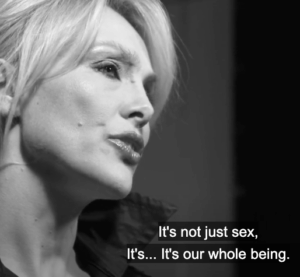Have you ever met someone who claims to have had a profound spiritual awakening, only to realize they still act like a complete emotional toddler in everyday life? That’s because waking up and growing up are not the same thing.
The Myth of Instant Enlightenment
Many people believe that a spiritual awakening is a one-way ticket to wisdom, maturity, and inner peace. One grand mystical experience, and—poof!—you’re enlightened, immune to petty human struggles, and floating through life on a cosmic cloud of bliss.
Reality check: this is not how it works.
Ken Wilber, one of the most influential thinkers in transpersonal psychology, breaks it down brilliantly. He explains that human development has multiple dimensions. There’s waking up—spiritual realization, transcendent experiences, feeling at one with the universe. And then there’s growing up—psychological and emotional development, learning to navigate relationships, and dealing with the not-so-glamorous aspects of being human.
You can have one without the other. And that’s where things get messy.
What Does “Waking Up” Really Mean?
Waking up refers to direct experiences of higher states of consciousness. Mystical experiences, moments of profound unity, deep meditative states—all of these fall under the category of waking up. Many traditions, from Buddhism to Advaita Vedanta, describe this as realizing the illusory nature of the ego and recognizing a deeper, interconnected reality.
But here’s the catch: just because someone has glimpsed transcendence doesn’t mean they’ve integrated it into their everyday behavior.
Spiritual experiences can be sudden. One moment, you might be scrolling through your phone, and the next, you’re overcome with a sense of deep oneness with the universe. But that doesn’t mean you’ve magically developed emotional intelligence, healed your childhood wounds, or figured out how to have healthy relationships. You might still snap at your partner for leaving dishes in the sink or struggle with self-doubt at work.
Growing Up: The Often-Ignored Journey
Growing up, on the other hand, is a slow and steady process. It involves developing a more nuanced, complex, and compassionate understanding of yourself and others. This means healing past traumas, taking responsibility for your actions, and refining your ability to navigate life’s challenges with wisdom.
Wilber describes growing up as moving through different stages of psychological and cognitive development. These include moral reasoning, perspective-taking, and emotional regulation. Simply put, it’s the process of becoming an actual grown-up.
And here’s the hard truth: people can have profound spiritual experiences while still being stuck in very immature psychological stages. That’s why we see spiritual teachers with undeniable charisma and deep insights who still engage in unethical behavior, fall into guru complexes, or struggle with basic human relationships.
Why This Distinction Matters
So why should we care about this distinction? Because conflating spiritual awakening with personal development leads to all kinds of problems.
- It Creates Unrealistic Expectations – Many people expect that a single profound experience will solve all their problems. When it doesn’t, they feel lost or assume they’re doing something wrong.
- It Enables Spiritual Bypassing – Some use spiritual concepts to avoid dealing with real-life issues. Instead of addressing their personal struggles, they might say things like, “Everything is an illusion” or “We are all one” to sidestep accountability and growth.
- It Explains Why Some ‘Awakened’ People Behave Badly – Just because someone has had a spiritual experience doesn’t mean they’ve mastered emotional intelligence, empathy, or basic human decency.
Bridging the Gap: Waking Up AND Growing Up
The real magic happens when waking up and growing up go hand in hand. A spiritual awakening can be a catalyst for deeper self-awareness, but without integration, it remains just a fleeting experience.
So what does a balanced approach look like?
- Self-inquiry with honesty – Instead of assuming that spiritual experiences make you immune to personal work, ask: “ What emotions do I find difficult to handle? What’s challenging me emotionally right now?”
- Therapy and shadow work – Addressing unresolved emotional patterns is just as crucial as meditating or seeking enlightenment.
- Real-world application – Spiritual insights mean nothing if they don’t translate into everyday actions. Being kind, responsible, and self-aware is just as important as having mystical experiences.
Final Thoughts: It’s a Journey, Not a Destination
Spiritual awakenings are beautiful, profound, and often life-changing. But they are not a substitute for emotional growth and personal development. You can wake up at any stage of growing up, but the real challenge is integrating those moments of insight into a fully embodied, mature life.
If a spiritual awakening has left you with more questions than answers, let’s talk.
And next time someone says they’ve awakened, just pause and notice—do they navigate daily life with wisdom, kindness, and humility? If not, they might still have some growing up to do. But then again, don’t we all?




